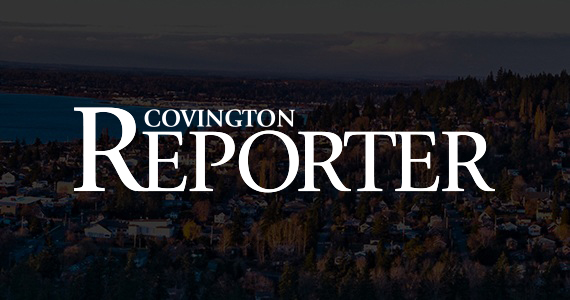President Barack Obama says two of his biggest priorities are jobs and renewable energy. Perhaps he should tell his regulators to help, not hinder, energy projects because some of their most recent actions are killing them and their accompanying jobs. In the process, they’re making us even more reliant on foreign oil.
The recent rains have been a relief to trees and shrubs following a very dry summer. While many homeowners water their landscapes throughout the summer, they often do not leave the sprinklers on long enough to benefit tree and shrub roots.
In the competition for $3.4 billion in education grants under President Obama’s Race to the Top, Washington is near the bottom. We ranked 32nd out of the 36 states that applied.
With all the focus on eliminating the Bush tax cuts and spurring the economy, President Obama and Congressional Democrats are tripping over themselves touting their small business tax breaks this election season. What they’re not mentioning is an automatic tax increase that will hit family-owned businesses hard, starting on New Year’s Day.
Finding a job is the best substitute for an unemployment check, but as more and more Americans exhaust their jobless benefits, employment opportunities remain sparse.
In July, the state unemployment rate was 8.6 percent, down from 9.5 percent a year ago; however, in parts of Washington it is in double digits. The Portland-Vancouver metro area reports 13.3 percent unemployment, about the same as last year.
I suppose we should give the state credit for trying to economize by consolidating its computer systems in one place, but the new Department of Information Services building at the state capitol is raising a lot of questions.
Facing a $3 billion budget gap next year, Gov. Chris Gregoire recently announced a renewed initiative to streamline state government. The governor created a 32-person panel to scour state agencies for efficiencies vowing, “There are no sacred cows.”
In the 1970s, Washington’s public utilities embarked on an aggressive nuclear power building project managed by the Washington Public Power Supply System (WPPSS). Unfortunately, the effort ultimately became known as “Whoops!”
China is in the midst of a global strategy to move its products to market and obtain the natural resources it needs to fuel its red-hot economy.
If you want a glimpse of what health care will look like under Obamacare, look at what is going on in Massachusetts.
In 2006, state lawmakers passed the Massachusetts Health Reform law. It was touted as a wave of the future and was the model for the new federal health reform law. But after a few short years, the law seems less like a wave and more like a sinking ship.
Most people know that our $13 trillion national debt is endangering America’s credit rating and pushing the United States closer to bankruptcy. But hidden beneath the surface is another ticking time bomb that threatens economic collapse in cities and states across the country: unfunded public employee pensions.
ach year, the Small Business & Entrepreneurship Council (SBE Council) publishes a list of the best to worst state tax systems for entrepreneurship and small business.
As legislators and others comb through the massive health-care reform law, they are finding little-known provisions that will have a big impact on the American people and our economy.
Could Washington and Oregon’s growing fleet of wind turbines become too much of a good thing? Perhaps.
Ever since the generators at the Grand Coulee dam started spinning in 1942, low-cost hydropower has been the key to our economic strength and way of life.
Few people know that tucked into the massive new federal health reform law was a federal takeover of the student loan program.
Begun in 1965, the Federal Family Education Loan program was a public-private partnership in which banks provided federally guaranteed student loans. In the early 1990s, the federal government created a “government option” of direct federal loans as an alternative.
When Idaho Gov. Butch Otter published his “Love Letter to Our Neighbors,” he touched off a political firestorm asserting his state is better for business
These days, it seems like profit has become a dirty word. To hear some politicians talk, you’d think making money was a bad thing — and that those who do should be taxed and regulated to death.
In reality, nothing could be further from the truth.
Too often, elected officials forget to connect the dots and do the math. Put another way, they fail to look at the complete picture and add up all the costs of government to taxpayers.
In good times, our elected leaders can walk the high wire between spending and taxes, spreading around money like gobs of peanut butter on a slice of toast. Bringing home the bacon has always been a sure ticket to re-election.

